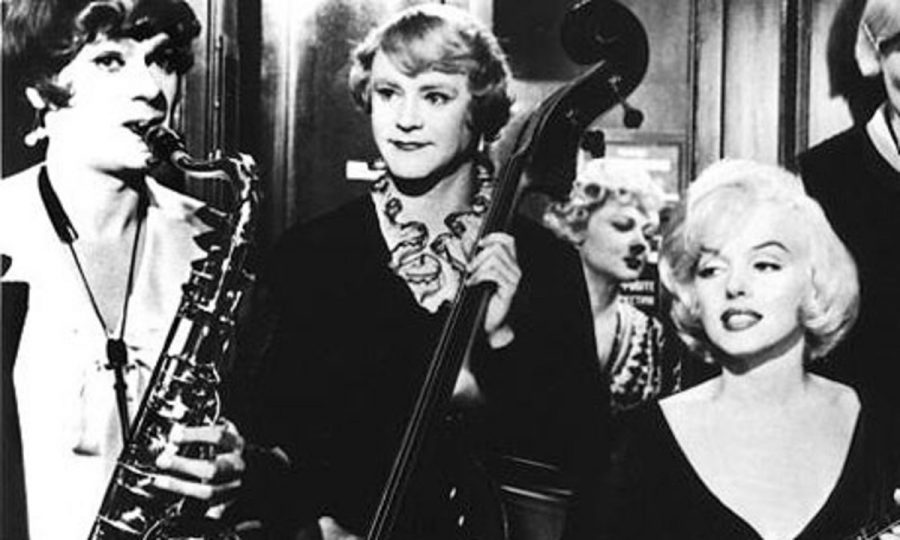Cinema Revisited: Some Like It Hot (1959)
Two (wo)men find themselves in romantic and life-threatening trouble
November 2, 2017
Marilyn Monroe is as iconic as Hollywood can get. Known for her “dumb blonde” persona in film, she would be a leading sex symbol in the film industry. Before her untimely death in 1962, she reunited with Billy Wilder, after their work in “The Seven Year Itch”. Wilder had stumbled upon a French film named “Fanfares of Love” and was enthralled. Purchasing the rights to its German remake’s script, he soon created one of cinema’s greatest farces, alongside comedy teamwork of Tony Curtis and Jack Lemmon.
February 1929, Joe (Curtis) and Jerry (Lemmon) are two Chicago musicians looking endlessly for work. The two accidentally stumble upon the now famous St. Valentines Massacre, planned by bootlegger Spats Columbo (George Raft). Knowing they are being pursued by the mafia, the two infiltrate an all-female jazz band- posing as women. “Josephine” becomes smitten with the bombshell ukulele player, Sugar Kane (Monroe) and attempts to impress her by being a fake millionaire, while “Daphne” has gained the admiration of real millionaire Osgood Fielding (Joe E. Brown). Matters turn worse when Spats and his crew check in to their hotel…
The film’s comedic final line “Nobody’s perfect” certainly fits the scene, however, Wilder and his crew are pretty close to it. One of the great screenplays of all time, it reminded me much of the Marx Brothers, particularly the “disguised” protagonists aspect. The chemistry between Curtis and Lemmon is phenomenal, earning the latter an Oscar nomination, but Monroe runs away with it. I had never been in truly awe of her performances, until her seductive Sugar, which has gone down as one of her finest. Adolph Deutsch composes the score, providing a sharp 1920s jazz backdrop, easily identifiable to the setting of the film and inclusion of Jazz music in the storyline
Despite receiving several Academy Award nominations, including Directing and Writing, it was absent from the Best Picture nominees. Since it’s release, it has since been listed among the top films of all time, including being ranked as the best comedy film by the American Film Institute. Ranked among the Top 10 scripts by the Writers Guild of America, it has stood the test of time as one of Monroe’s most remembered works, along with “The Seven Year Itch”, “Gentlemen Prefer Blondes” and “Bus Stop”, as well as a masterpiece of film, and has stood alongside giants “Citizen Kane” and “Gone With The Wind” since its release back in 1959.





